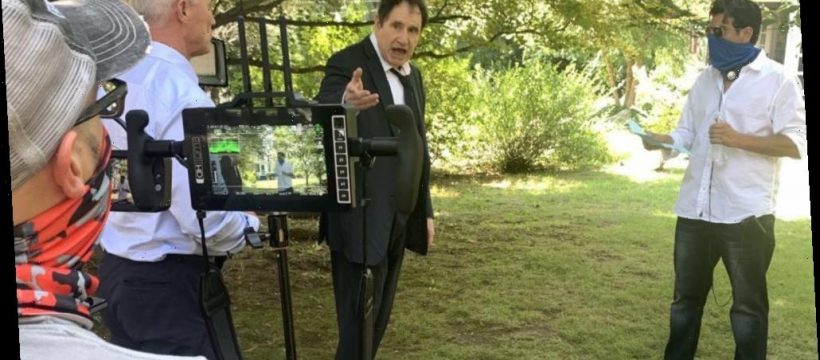Filmmaker Elias Plagianos and his team had won the second-annual Science and Tech Script Competition at the North Fork TV Festival for “Superuser Do,” a movie anthology following technologists throughout their personal and professional trials. Along the way, it looked at the influence of technology giants on our lives.
The anthology debuts this weekend at the North Folk Festival and after winning the prize, Plagianos decided the script needed a rewrite. It was wrong, in his eyes to tell a story about students without looking at the pandemic and how that has altered our world, in this case, learning via Zoom. Before production, he scrambled to re-write the script.
Serving as editor, writer and director, Plagianos wanted to tell an authentic story. He talked to Variety about reframing the narrative and adapting to the safety guidelines as an independent filmmaker.
“The writers have won the Alfred P. Sloan award at the North Fork festival, and we’re producing it. It follows this group of diverse technologists through their personal and professional trials, and along the way looks at how tech giants have this huge influence on our lives,” he said.
The logline is about a student losing their scholarship due to their involvement in the Black Lives Matter movement, and this was a story you put together in the pandemic.
The world has really changed, it’s something we have to address and so we addressed that in our story. It’s not just the social upheaval, it’s things about going back to school, wearing a mask and learning via a laptop. So, it felt inauthentic to do this story and keep it in the original world. So, I did my rewrite and looked at what I wanted to talk about and what are some of the topics, I think we have a unique chance to dramatize, and that’s how I approached it.
There’s so much talk about diversity within crews and here you are with an 80% diverse crew.
Working within the indie world for the last ten years, I’ve connected with more of a diverse crew.
I looked at my crew list and it was either someone is diverse or female and that just happened organically.
It’s so exciting because what happens in the Indie world often translates to the studio world, and I really hope it continues where it really matters – within the studios.
So much focus is on the studio world and how productions have to work with smaller crews, but what is it like for working on an independent film and working with smaller crews in a pandemic when that’s the norm for you anyway?
You hit the nail on the head. This is how we’ve been making films for years now, and this is the second project that I’m shooting.
As soon as production could begin in New York, I shot one project with Jessica Hecht and Richard Kind, and yes, we were a bit nervous. But I reduced my crew to just a sound guy, a cameraman. The set ran smoothly, and almost like a play, the actors came up with unique performances.
But that said, the safety protocols definitely make it harder to do my job because you’re always wearing a mask and cleaning everything and you create this environment that sometimes takes actors out of the performance.
How long did it take to shoot and did the new protocols have an impact on your shooting schedule?
The major problem we had was with testing because the Screen Actors Guild has very strict rules, and you could only use very specific tests. We could not shoot for more than a week because then the entire crew would have to be tested. We had to get it done in that week, otherwise, it would then be about our budget being spent on testing.
If you think about it before when someone showed up sick to work, the crew and the cast would power through it. But now, the entire production is shut down. So, it’s an incredible risk from a financial standpoint to do these things too, if you’re a smaller film.
Source: Read Full Article
